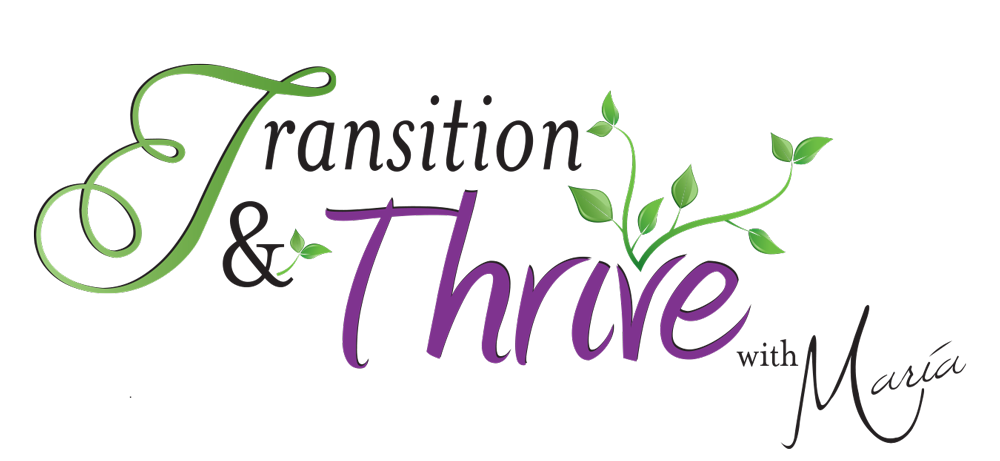Life transitions are hard to face. As we go through them, we are changed, and nothing is the same again. Sometimes, I wish there was a manual we could reference when life events knock us upside down. Wouldn’t it be great if we had a simple formula for living through these difficult times?
Suddenly someone dies and you’re left alone to fend for yourself—what do you do? Or, your husband comes home and springs these words on you, “I don’t love you anymore … I want a divorce”—what is your first reaction? On the other hand, the transition may be more expected because your last child has left home. What you didn’t expect is feeling as if you don’t know who you are anymore—where do you turn to figure it out?
Having lived through more than a few of my own major life events, I have tried various ways to turn myself right side up again, which I’ll share with you here. When I can see things more clearly, I begin to move forward. It’s taking that simple action of one-foot-in-front-of-the-other that makes the difference in how I feel. To be real, it is simple—but it is not always easy.
I understand that the same approach does not work for everyone. Yet, I believe you can develop a simple formula for living through those times if you adapt and apply certain strategies that suit your life situation.
At the very least, each one of these ideas could be your own personal formula for living. Or, you could choose to combine one or two or three at different times to magnify the results.
The key is to keep an open mind, then adapt and apply the strategies to your current transition, creating your own simple formula for living.
Elements for Your Simple Formula for Living Through Transition
Get Centered on Your Values
Life has a way of changing you. Consequently, your values may change over time. You may notice that you have compromised your own values to keep the peace and live by someone else’s.
Regardless of what major life event you may now be facing, take some time to re-evaluate your own core values. Write them down and allow them to influence each and every decision you make going forward. Ask yourself, does this decision honor my value of (fill in the blank). For example, you are considering whether to stay in your family home or move after going through a divorce. One of your core values may be Financial Freedom. Although your emotions may be raw and you can’t imagine moving at this time, staying in that home may be unaffordable and your core value of Financial Freedom may not be honored by staying and paying more than your budget would allow. The decision will be made easier when you rely on your values to guide you. This could be part of your formula for living.
Stop Repeating the Story
It’s human nature to tell everyone who will listen that something major has happened to you, especially when they ask, how are you doing? Their response helps you to feel compassion from others, which is not a bad thing—until it is. There comes a point when repeating the story becomes a trap and you become a victim to the story. You create more drama the more you tell it. As a result, you become stuck in your story.
When you decide this is not how the story ends, you will be able to stop telling the old one and start thinking about the ending you want to design instead. What you share with others will become what you want to happen next, rather than what has happened. Another potential piece for your formula for living.
Take Time to Breathe
Give yourself permission to stop. When major life events happen, you are likely feeling thrust into situations and a flurry of activity—people to talk with, decisions to make, and an emotional roller coaster that won’t stop. You need time to gather yourself, breathe, think, and be still. Allow yourself this break so you can be better equipped to meet the difficult conversations with more dignity and grace.
No Shame in Asking
This means asking for help in any way you need it. Financially. Personally. Spiritually. Physically. Or in any other way.
Life is hard enough when things are going well to do it alone. But, when things blow up in your life it is the worst possible time to play the lone wolf. No need to be too proud to ask, or too ashamed.
You may need help because your husband is now gone and you have no idea what bills he paid, or where his accounts are held. Someone with financial savvy can help. It may be strength and faith you need to get you through this. Seek a spiritual guide. When all the craziness has settled down and everyone has gone back to their lives, you may not know who you are or what you want. Reach out for someone who has been where you are and can share a different perspective. Allow people you trust to participate in your new formula for living.
Let Go of the What Ifs
Worrying about all the things that could happen will not help. In fact, I love the adage “worrying is like praying for what you don’t want.” So, when those what-if scenarios start dancing in your head, it’s another time to say STOP. Much like you can stop repeating your old story, you can stop playing and replaying the things that have not happened.
Preparing yourself for something that may never happen is an enormous expenditure of energy that you can’t get back. Plus, it can only dampen your spirit at a time when you need to be lifted up. There are enough other things to drag you down at a time of difficult transition—you don’t need to play an active role in it.
Live, Love, Laugh
This is a tough one to manage when life has taken you down for the count. Remember, I said this “simple formula for living” may not always be easy.
The truth is, even if you sometimes want to stop living, loving, and laughing it is against your nature to do so. You are designed to live, love, and laugh. So, fighting it just makes the transition you’re going through harder.
Life does go on. And, loving yourself through the difficult times is an essential piece of moving beyond the loss, grief, turmoil, and resettling. Likewise, finding times and ways to laugh will help you release stress, tension, and worry. Making a conscious choice to add this to your formula will make a wonderful difference in how you come out on the other end of the transition.
Listen for Signals
Finally, tune into your body and listen for signs that what you are choosing is right for you at this time. Your intuition is a powerful guide when going through massive changes. Sit quietly and wait for the signals. Ask yourself if this choice or that decision is a good one—watch what happens. Do you feel the warmth around your heart? Perhaps, you get chills when you say something. An immediate yes or no may come to your lips. You may wonder where that came from. Your body knows. And, your inner wisdom will speak when you stop and wait for it to guide you.
One or more of these strategies may help you create your own simple formula for living through difficult transitions. As I mentioned, try them out. Adapt them to your own personal circumstance and then apply them each time life turns you upside down. It may not feel easy at first, but with practice, these strategies can be a lifeline to turning you right side up again when life happens.
Step Onto Your Bridge
When life-changing moments suddenly flip your world upside down, you may not know who you are anymore or what comes next. I create a bridge for women to walk from that chaos to a place where they can find calmness and clarity. They build resilience along the way and learn to live a life guided by their own values and vision. To learn more about the impact change can have on your life and how to move through it with more dignity and grace, request my free ebook From Darkness to Light: Learning to Adapt to Change and Move Through Transition.

